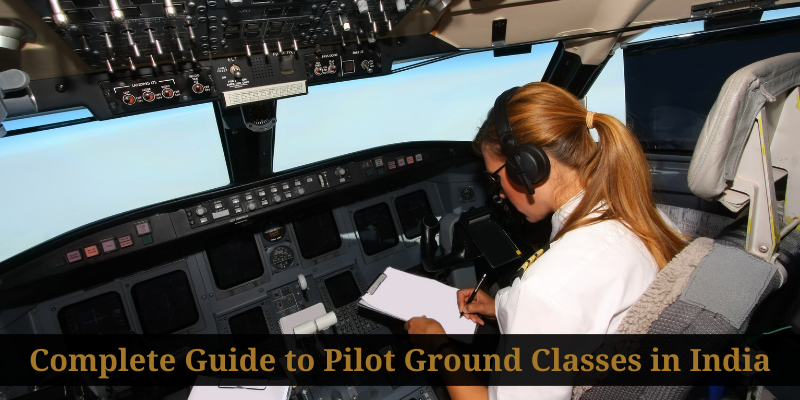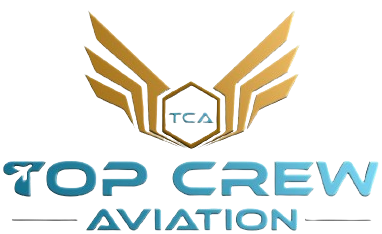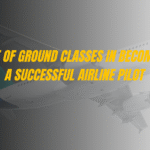
Becoming a pilot involves more than just learning how to fly an aircraft. Before a student pilot can start flying, they must first complete ground school training. Pilot ground classes are the theoretical part of pilot training where students learn everything about aviation theory, aircraft systems, flight planning, meteorology, and air regulations. This is the foundation on which practical flying skills are built.
DGCA-approved aviation training institutes in India conduct these classes. They are required before you appear for DGCA exams, which are necessary to get a Commercial Pilot License (CPL). Ground classes prepare students to understand how airplanes work, how to read weather conditions, communicate with air traffic controllers, and follow aviation rules. Without completing this part of the training and passing the exams, no one can become a licensed commercial pilot in India.
Key features of pilot ground classes:
- Provide theoretical knowledge about flying
- Required to appear for DGCA exams
- Conducted by DGCA-approved institutes
- First step before starting flying hours
Why Are Pilot Ground Classes Important?
Pilot ground classes are not optional — they are a mandatory part of the CPL (Commercial Pilot License) training process in India. These classes are designed to ensure that student pilots understand the science, rules, and techniques behind flying. Learning how to fly is not just about taking off and landing. A pilot must be skilled in reading instruments, interpreting weather charts, following airspace rules, and communicating professionally with Air Traffic Control (ATC). All of this starts with ground training.
By completing ground classes, students build the knowledge required to handle real-life flying situations. It also boosts their confidence before they start flight training. DGCA conducts written exams on these subjects, and only those who pass can continue with their practical flying sessions.
Why ground school matters:
- Helps build strong aviation knowledge
- Prepares students for DGCA exams
- Teaches communication and emergency protocols
- Required to move on to flying training
- Builds confidence and safety awareness
DGCA Ground School Subjects (Theory Syllabus)
The Directorate General of Civil Aviation (DGCA) has a fixed set of subjects that every student pilot must study and pass in written exams. These subjects are taught in ground school classes and are essential for obtaining the CPL. Each subject teaches a different aspect of aviation and flying.
Let’s look at what each subject includes:
| Subject Name | Description |
| Air Regulations | Covers aviation laws, airspace classifications, pilot responsibilities |
| Aviation Meteorology | Understanding of weather systems, visibility, clouds, turbulence |
| Navigation | Teaches how to plan flights, use maps, calculate distances and headings |
| Technical General | Learn about aircraft engines, electrical systems, instruments, hydraulics |
| Technical Specific | Learn about aircraft engines, electrical systems, instruments, hydraulics |
| Radio Telephony (RTR) | Training on how to communicate with ATC, use aviation phrases, handle emergencies |
DGCA conducts these exams, and the Radio Telephony (RTR) exam is conducted by WPC (Wireless Planning and Coordination wing of the Ministry of Communication).
Best Pilot Ground School Institutes in India
Choosing the right ground school is very important because the quality of your training depends on the experience of the instructors, the accuracy of the study material, and the support provided during DGCA exam preparation In India, many ground training schools are available, but you should always choose a DGCA-approved and well-reviewed institute.
Some of the best ground schools offer both online and offline options, mock tests, personalized mentoring, and RTR coaching.
Top ground school options in India:
- Top Crew Aviation – Known for detailed training and mock test preparation
- Indira Gandhi Institute of Aviation – Offers full CPL ground subjects with experienced instructors
- Capt Sahil Khurana Aviation Academy – Provides one-on-one coaching and focused exam strategy
- Indira Gandhi Institute of Aeronautics – DGCA-recognized with affordable fees
- Indira Aviation Academy – Offers pilot theory training along with RTR coaching
Duration of Pilot Ground Classes
The time required to complete pilot ground classes depends on your learning mode and the type of batch you select. Institutes offer flexible durations to match the needs of both full-time and part-time students. If you want to finish quickly, fast-track batches are available. For those managing school or jobs, weekend or online batches are suitable.
Different duration options:
| Batch Type | Duration |
| Regular Classroom Batch | 4 to 6 months |
| Fast Track Intensive Batch | 2 to 3 months |
| Weekend or Online Batch | 6 to 8 months (flexible) |
Make sure the batch you select gives you enough time for revision and mock test practice.
Fees Structure for Pilot Ground Classes in India
The cost of ground classes can vary depending on the location of the institute, the quality of faculty, the facilities offered, and whether you choose online or offline courses. Fees usually cover tuition, study material, and practice tests. However, RTR coaching may come with an extra charge.
Average fee structure:
| Type of Institute | Fee Range |
| Top Institutes (Delhi, Mumbai) | ₹70,000 to ₹1,20,000 |
| Regional/Local Institutes | ₹50,000 to ₹80,000 |
| Online Courses | ₹30,000 to ₹60,000 |
Always confirm what is included in the fee before you join, such as study material, practice exams, and DGCA portal help.
Online vs. Offline Pilot Ground School
Nowadays, many students prefer to study from home, and ground schools offer both online and offline learning formats. While online classes offer flexibility, offline classes provide more in-person interaction and direct mentorship. Each format has its pros and cons, and your choice should depend on your schedule and learning preferences.
Comparison between online and offline pilot ground school:
| Factor | Online Ground School | Offline Ground School |
| Flexibility | High | Low |
| Class Access | Live/Recorded Sessions | In-person only |
| Interaction with Teachers | Limited | Full access |
| Cost | Lower | Higher |
| Best For | Remote learners, working people | Students available for daily class |
How to Enroll in Pilot Ground Classes
Start your pilot training journey. The first thing you need to do is enroll in a ground school. You should meet the basic eligibility criteria, choose a reliable institute, and then complete the registration process.
Steps to enroll:
- Make sure you have passed 10+2 with Physics and Math
- Choose a DGCA-approved ground training institute
- Visit their office or apply online
- Submit required documents (ID proof, 12th marksheet)
- Pay the admission and tuition fees
- Start attending classes (online or offline)
Some institutes may also help you create your profile on the DGCA portal and guide you in the exam application.
Tips to Succeed in Pilot Ground Classes
Ground school is not easy — it covers technical and theoretical topics that require attention and consistent effort. Students who revise regularly, stay disciplined, and ask questions perform better in DGCA exams. It’s important to stay focused, especially on subjects like Navigation and Technical General.
Valuable tips to succeed:
- Revise your class notes daily
- Practice DGCA sample papers and mock exams
- Focus more on complex subjects like Navigation and RTR
- Attend all classes regularly
- Join study groups or discussion forums
- Get proper RTR training for better communication skills
What Happens After Ground School?
Once you complete ground classes and pass all DGCA papers (and RTR), you can begin your practical flying training. Most flying schools in India require you to clear the theory portion before logging flight hours. After ground school, you will go through flying training, simulator sessions, solo flights, and final check rides.
Next steps after ground school:
- Start flying training with a DGCA-approved flying school
- Log at least 200 hours of flying
- Complete simulator training and solo flights
- Appear for the final CPL skill test
- Apply for Commercial Pilot License
Conclusion
Pilot ground classes are the starting point of your aviation career. Without solid theoretical knowledge, you cannot become a confident and safe pilot. Whether you choose online or classroom training, make sure the institute is DGCA-approved, has experienced instructors, and offers full support for exam preparation. If you are serious about flying, start with a strong foundation — start with a good ground school.
“Every take-off begins with ground school. Master the theory, and the skies will follow.”
Frequently Asked Questions
No FAQs found.



